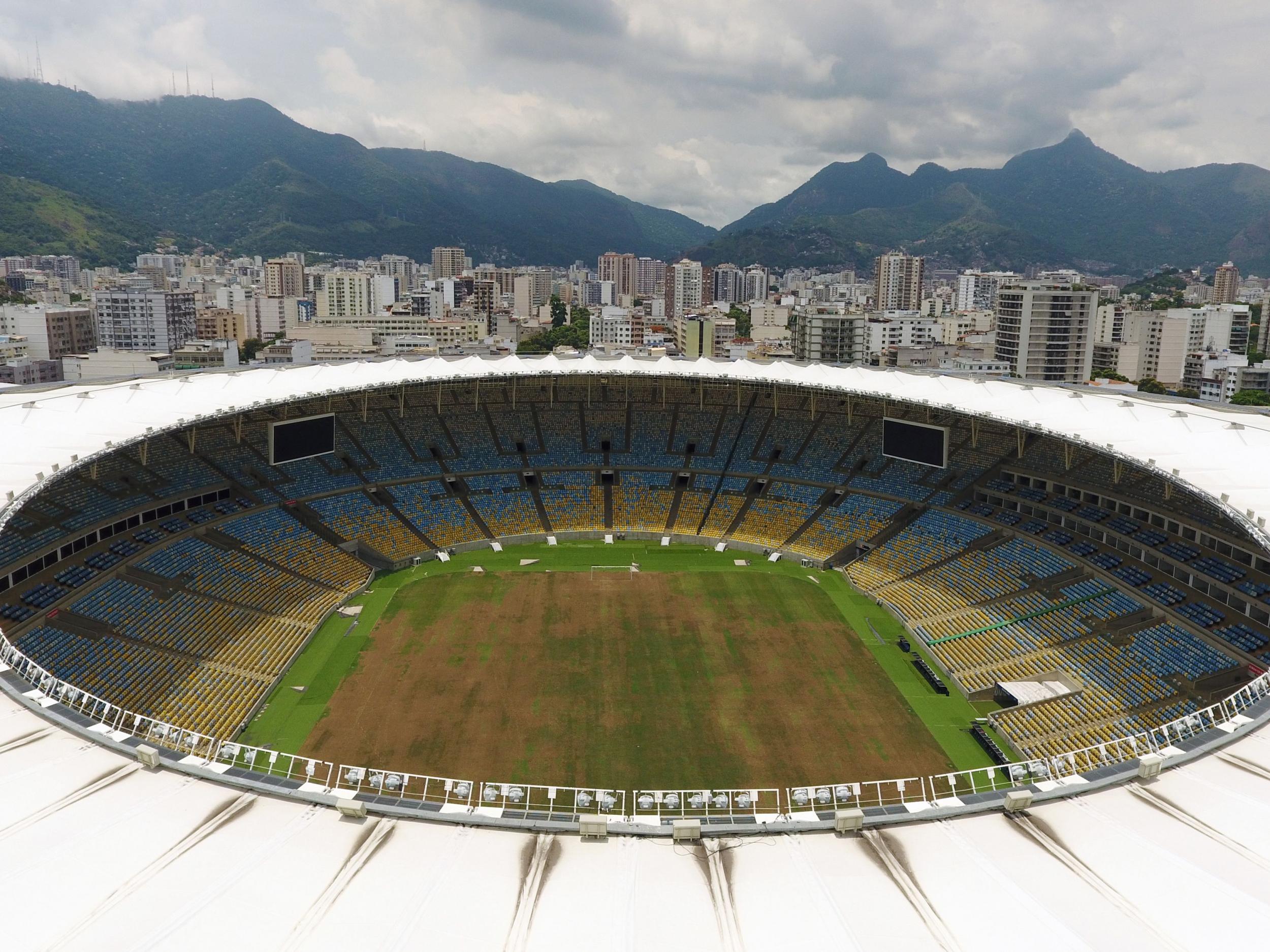Rio 2016 Olympic venues left in disrepair as Brazil struck by its worst recession in modern history
'During the Olympics, the city was really trying hard to keep things together. But the minute the Olympics were over, the whole thing disintegrated'

Only six months after the world was captivated by the Olympic Games in Brazil, the venues have been left empty and are falling into disrepair as the country is struck by its worst recession in decades.
The historic Maracana Stadium, recently hosting the 2016 Games’ dazzling opening and closing ceremonies was vandalised after being left empty while the Rio state government and the Olympic organisers quarrelled over $1m [£800,000] of unpaid electricity bills.
Electric utility company Light reacted by cutting off all power to the stadium, where the 2014 World Cup final was played.
Photos from inside the stadium have shown seats ripped out, paint peeling from interior walls, and the playing field, which is reported to have been invaded by worms, is turning brown because of the lack of water.
About 10 per cent of the 78,000 seats are also reported to be missing.
"There are things that you can see on the surface that are damaged, like the grass and the seats. However, what we are most concerned about is the safety of the people who are coming to Maracana and we need to make sure things, like the stadium's roof, weren't compromised,” Daelcio de Freitas, a spokesman for Maracana SA, which is responsible for the stadium's upkeep, told CNN.
Violent robberies have been reported nearby the stadium and following a recent break-in, expensive equipment and a bust of late journalist Mario Filho, who the stadium is named after, have been stolen, the American broadcaster reports.
Brazilian Professor of International Relations, Oliver Stuenkel, said: "During the Olympics, the city was really trying hard to keep things together. But the minute the Olympics were over, the whole thing disintegrated."
The organisers of the Rio Olympic Games still owe creditors about $40m [£32m] and the iconic Brazilian stadium is not the only venue to have been left to decay.
Two arenas, a tennis centre and a velodrome, which were built for the Games in the main Olympic Park, have not attracted private operators and their ownership is now being passed on to the federal government.
A dashing new $20m [£16m] Olympic golf course has seen few visitors recently and with little money coming in, there is no-one to take care of its upkeep.
In the north-west of Rio, the Deodoro Olympic Park, home to the second-largest group of venues, is also closed and in need of a management company to take it over.
The park hosted events such as equestrian, rugby and field hockey. Deodoro had been earmarked to become a park and a recreation area after the Olympic Games but the company previously operating the park had its contract terminated at the end of last year.
The Olympic athletes’ village is open but few people can afford the price of the homes so the accommodation could be sold to the navy and the army, AAP reports.
Hundreds of families living in Rio’s favelas were ordered to leave the area to give way to the new Olympic Park for the 2016’s Games, which slogan was “A new world”.
Brazil spent about $12bn [£9.6bn] to organise the 2016 Olympic Games and around $13m [£10.4m] on the 2014 World Cup.
"The legacy is incredibly poor. This all coincided with the economic recession but in Rio, just like the boom here was more intense because of the Olympics, now the fall is more intense because of the Olympics.
"Everybody here is suffering right now, of all incomes and all stripes and colours,” Theresa Williamson, executive director of Catalytic Communities, a Rio-based non-government organisation providing support to favela communities, told AAP.
In the state of Rio de Janeiro, authorities have been months late paying teachers, hospital workers, and pensions. The state also reported record-breaking crime in 2016 in almost all categories from homicides to robbery.
In the state of Espirito Santo, more than 100 people have been reported killed, with schools and businesses closed and public transportation at a standstill as a six-day strike by police shows no signs of abating.
In a report, pointing out to ongoing police killings and homicides, Amnesty International said: “Unfortunately, the promised legacy of the Olympics of achieving a safe city for all people was not delivered, and instead a legacy of human rights violations endures.
“Rio 2016 leaves a shady legacy of a city entrenched with marginalisation and discrimination, with a deeply militarised public security approach and a record of human rights violations, where violence remains part of the game.”
Less than 50 days before the start of the Olympic Games, the state of Rio de Janeiro declared a “state of publicly calamity” due to severe financial difficulties.
The country has been faced with a public health crisis over the Zika epidemic, a presidential impeachment trial and one of the worst recessions on records.
Join our commenting forum
Join thought-provoking conversations, follow other Independent readers and see their replies
Comments
Bookmark popover
Removed from bookmarks